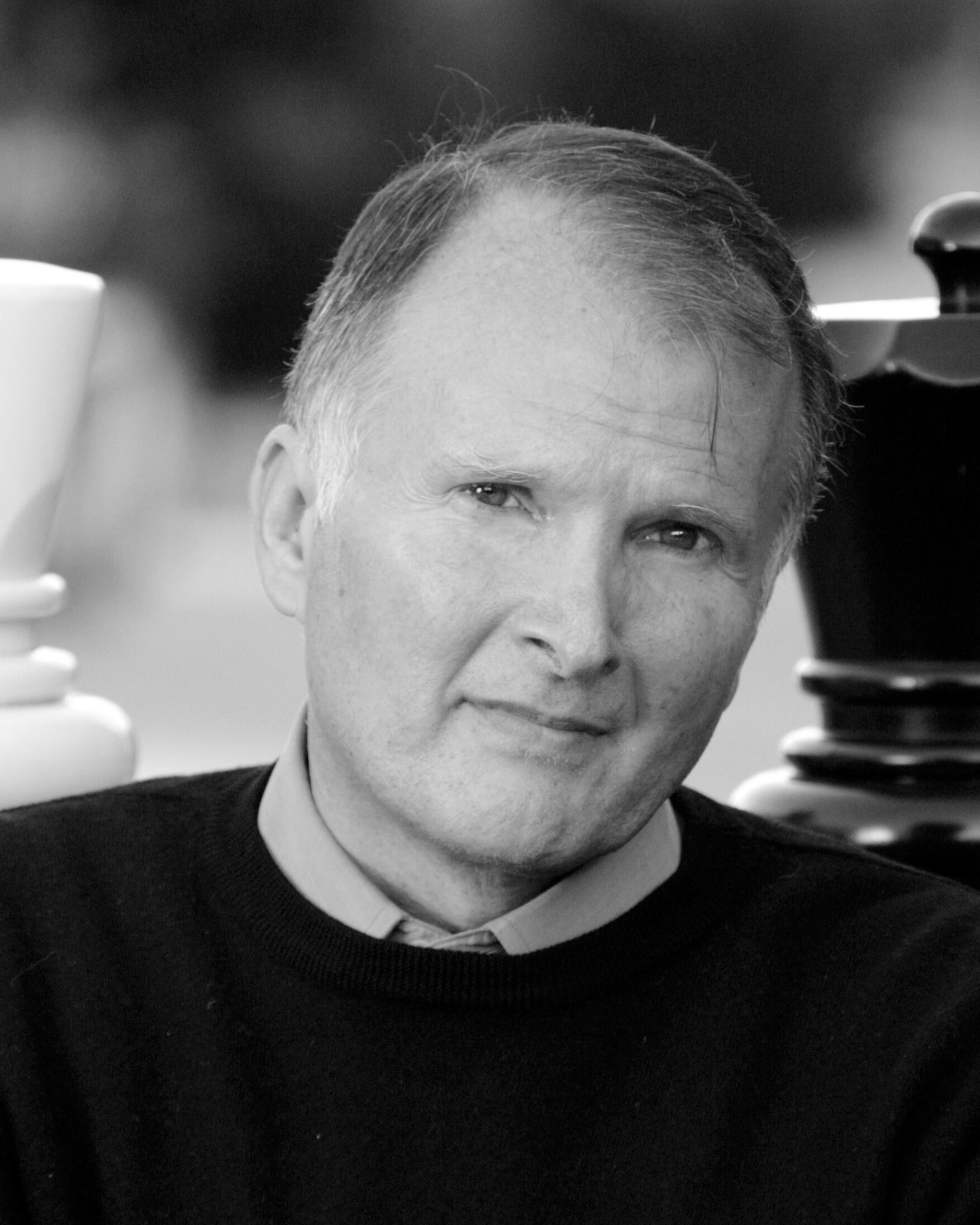Cyberwarfare has evolved as not only a buzzword in defense circles but one that underpins much of what modern warfighting, with or without bombs, bullets and bandages, has become.
Dr. John Arquilla and his colleagues at the Rand Corporation and the U.S. Naval Postgraduate School were peering into the interconnected planet, and especially its future battlespace in the early 1990s. Despite creating new uniformed and civilian jobs in defense, as well as establishing U.S. Cyber Command, Arquilla sees cyber thinking among political and military leaders as potentially fractured or sometimes missing the point.
Arquilla served as an advisor to former Secretary of Defense Donald Rumsfeld, assisted with information strategy for former Deputy Secretary of Defense John Hamre during the Kosovo War and consulted for Gen. Norman Schwarzkopf during Operation Desert Storm.
The NPS professor emeritus wrote the recently published book, “Bitskrieg: The New Challenge of Cyberwarfare,” which provides breadth and depth in a slim volume of roughly 200 pages.
Military Times spoke with Arquilla about the book and some of what he’s trying to share with everyone from the grunt to the general officer and civilian leaders on how the United States needs to shift its thinking and operations.
The following Q&A interview has been edited for length and clarity.
Q: What are your thoughts on Cyber Command, how it was formed, how it’s being staffed, used, etc.?
A: In the past, putting cyber behind the green door slowed the process of getting these ideas out across the services. It ramped up so quickly. I have a concern at the high number of private contractors. I think that’s a problem. The military should put more into getting uniformed personnel into those billets.
I understand that is breaking down now. And in the beginning, there was too sharp a division between offensive and defensive operations. Everything you can learn about good defense can get from doing offense, vice versa.
Q: What should every entry-level service member to service chief understand about cyberwarfare at their level?
A: Every E-1 should know that they are sensors, not just shooters. Every sensitive site exploitation can create an opportunity for information. Also, everyone is an emitter. Your smartphone’s probably got 20 [different] apps on it to say where you are. Information Mission Control is absolutely necessary. Realize that everybody is in the information age. Military organizations are sensor organizations, not just shooting organizations. The business of sensing is complemented by realizing that every individual on some level is an emitter of information.
Mid-career military members don’t need to be computer geeks but need to understand themselves as information managers. Make sense of all this information. What’s relevant to the situation that I am facing?
At higher levels, G1+ must make sure to connect those sensor and information links with issues of advanced organization and doctrine. And create the next AirLand Battle.

Q: There are a lot of references to Distributed Maritime Operations, Multi-Domain Operations, and other new warfare concepts. How does “Bitskrieg” fit in with or contradict these approaches?
A: On MDO, it’s important as a step towards Bitskrieg. But if you’re truly operating like China in warfare or Russian Gerasimov doctrine, then you need to tease out the implications for military doctrine and organizations for themselves. The “how you fight” optimal doctrine is not going to be mass on mass, not even maneuvers like Blitzkrieg. It’s the distribution of forces and fires capabilities. We called that “swarming.” My belief, to this day, the gathering swarm the coming swarm is really where we need to be moving. I do see distributed lethality, DMO, all building blocks to the battle.
To optimize the emerging new doctrine, you have to have the right organizational form. A century ago, planners brought the tank, plane, radio communications and other technologies together. And they realized it was important to concentrate tanks in their own organizational unit such as the Germans did with the Panzer division. Germans got it right first, others followed. What’s the right organizational form? The biggest challenge and most important is organizational. Instead of a military of a few large things like aircraft carriers, bomber fleets or Marine Expeditionary Units, we should build a military of many small things. That allows us to operate in a distributed way, be more elusive, more accurate as shooters. Feed the whole notion of the military as a sensory organization.
Among all the services I think the Marines are the farthest ahead in catching a glimpse. They’re the closest to Bitskrieg if you ask me. Decoupling range and accuracy from weapons. Working across great distances and extremely high levels of accuracy. The many and the small operating highly effectively. Especially in littoral operations. Hopefully what the Marines are doing will be a laboratory for the other services.
That night, over 100 troop-laden Taliban trucks were destroyed. This was Bitskrieg in action: the skillful blending of fast-moving information and firepower in swift, lethal fashion. The Taliban truck convoy was destined to be on that road for hours, vulnerable for more than enough time for an aware enemy to strike at it.
— -Dr. John Arquilla, "Bitskrieg: The New Challenge of Cyberwarfare"
Q: Is the United States doomed to sluggishly trudge along with our cyberwarfare concepts as China and Russia’s militaries move ahead until there’s a reckoning?
A: We are way out of balance here. Our defenses are exceptionally weak, [but] to some extent moving ahead. I’m proud to say the NPS is one of the principal early advocates for data mobility and cloud storage. Keep your data moving and encrypted and it’s better. Strong encryption and data mobility has to happen and it has to happen right away. Every time you hear a story, whether it’s the colonial pipeline, title companies, office of personnel management got hacked, [the] emphasis [needs to be] on defense. I know everyone loves offense, but we’ve got to balance. Russia, China, North Korea and Iran have balanced.
And as far as kinetic warfare, now bombs and bullets will be directed by bits and bytes, just as the French and British took tanks and planes and parceled them out across the forces. Today we’re grafting the new technologies. Whether it’s carrier ops or land battle or any other area of military activity. We’re a little bit behind the Russians and a lot behind the Chinese. It’s less about an arms race and more about an organizational race. We have to redesign and redefine ourselves.
Q: You reference early successful operations in Afghanistan. Turning to similar areas, how could we properly use cyberwarfare in our non-peer operations in Libya, Somalia, Mali, etc.
A: I think we need to rekindle the spirit of those 11 Green Beret A-Teams that went to Afghanistan in the fall of 2001. Things like the tactical webpage and other tactical systems. They won a campaign in a very short amount of time. The campaign against ISIS under President Donald Trump was very much organized in small teams. Kurds were a tremendously reliable indigenous force to achieve in a very quick time. Again, it’s an example of how the many and the small, less permissive in some places, probably not sending teams in Libya or Yemen but we do have them operating in and around Somalia. Even in an era of great power competition, there are little brushfires going on. Just like in the Cold War and we’re going to see that again. But it’s going to be “little green men,” not the tanks into the Fulda Gap.
Therefore, militaries are reluctant to discard older ways, with generally successful track records, for uncertain new methods. It is worth keeping the past in mind as we ponder the cyber future.
— -Dr. John Arquilla, "Bitskrieg: The New Challenge of Cyberwarfare"
Q: Any closing thoughts to share with readers on cyberwarfare and its future?
A: I am very optimistic and here’s why: I think the early experiences of an officer are formative. The three-four stars today had their formative experiences in Desert Storm. The officers starting to put on stars now, will all have had their formative experience in the post-9/11 period campaigns. All will have these experiences and understanding and willingness to use new tools in new ways. I saw it until I retired recently in my classrooms. Officers usually attend NPS at about 10-12 years into their careers. I saw it coming in 2008-09.
And artificial intelligence will transform much of what we’re doing. I think GI Joe and “AI Jane” are going to get together in the coming years and AI will have as profound an effect in military affairs in the 21st Century as the aircraft did in the 20th Century. That is something that has tremendous potential for military and human affairs. China and Russia moving full speed ahead. An AI arms race, I think, is underway and will have transformational effects. I want to make sure that the U.S. military is in the forefront of development and what they will mean organizationally.
Todd South has written about crime, courts, government and the military for multiple publications since 2004 and was named a 2014 Pulitzer finalist for a co-written project on witness intimidation. Todd is a Marine veteran of the Iraq War.





